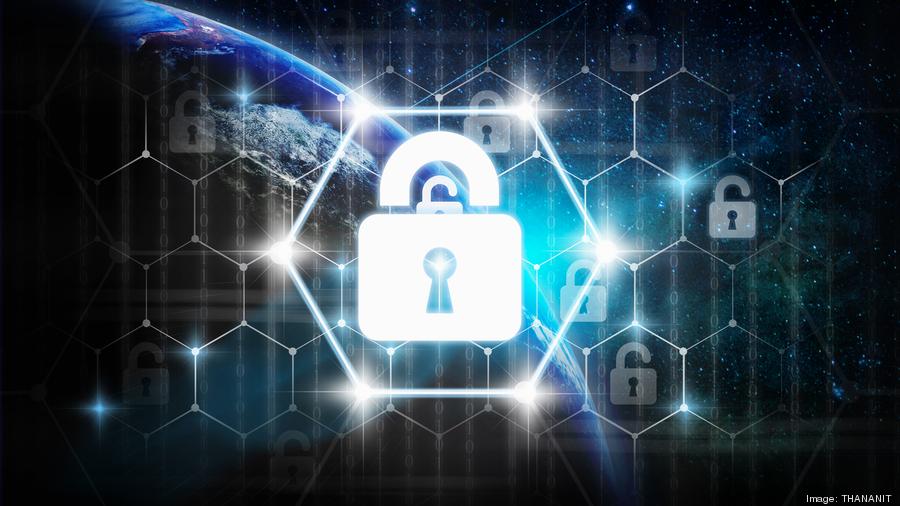Up to $1.5 million: That’s how much a network attack may have cost Raleigh-based communications software firm Bandwidth (Nasdaq: BAND) in its latest quarter.
The company notified shareholders Wednesday to expect its total revenue for the quarter ended Sept. 30 to be reduced “by an amount between. $0.5 million and $1.5 million.” Bandwidth attributed the projected decline to “lost transaction volume and potential customer credits” related to the attack.
Bandwidth was the target of a distributed-denial-of-service (DDoS) attack last month that caused intermittent communications services disruptions.
In a DDoS attack, there's an information overload. Michael Crean, CEO of Virginia cybersecurity firm Solutions Granted, compares it to too many cars merging on a highway, causing traffic to just stop.
“It’s when somebody decides to send an incredible amount of information in a fast manner that will typically overload the system,” he said.
Bandwidth, according to its disclosure, teamed up with leading cybersecurity firms to offset the attack.
“Bandwidth’s network has been largely stable and operating at normal service levels since the evening of Sept. 29, although there have been some continued intermittent disruptions,” the firm said iWednesday.

But Bandwidth isn't alone. Multiple technology firms have reported similar incidents, including Canadian voice-over-IP service provider VoIP.ms. In the case of Bandwidth, it reportedly impacted services from Bandwidth customers such as Accent and RingCentral.
Crean said each new situation needs to be looked at as a “learning opportunity” by business leaders at other firms. Because attackers aren't slowing down.
“If they don’t have current systems in place that are capable of defending against this, if they don’t have better relationships with the upstream providers and if they’ve never seen it before, they just won’t know what to do with it,” he said, noting firms in the sector have been hit “really hard” in recent weeks, causing communication issues where people can’t even use their phones. “I’m not sure the providers had been thinking about how much of a target they are.”
Crean said Bandwidth’s situation is a wakeup call, and that if leaders don’t understand DDoS attacks, they should consider hiring subject matter experts.
What businesses need to know about DDoS attacks
Kenneth Mendelson, senior managing director at global security consultancy firm Guidepost Solutions, said the best way to defend against DDoS attacks is with filters.
“The best thing a company can do to minimize the effects is first to implement filters to block unwanted traffic on their own systems,” he said, noting that it may also be prudent to contact your internet service provider or managed service provider about additional filters. “If you can reduce the amount of traffic coming to your network, then you’ve effectively alleviated the denial of service, and availability is restored.”
Mendelson said DDoS attacks are on the rise.
Bob Bilbruck, CEO of California consulting firm Captjur, said that as the world gets more connected via 5G and Internet of Things (IoT), these types of attacks will keep accelerating. And that’s because personal devices – from your smartphone to your thermostat to your smart-connected blender – may be vulnerable to attackers, he said.
Like Crean and Mendelson, Bilbruck has no direct knowledge of what happened to Bandwidth. And Bandwidth, which is still investigating the attack, hasn’t released a lot of information. But Bilbruck said that in many cases, it’s devices that make a company vulnerable.
“Security in IoT devices is not always that strong,” Bilbruck said. “That’s the dirty little secret. … They’re being put on the network and all the network security is pretty strong. The actual, individual device, though is not strong at all.”
The vulnerability can increase in a remote work environment, where employees may be more dependent on their devices while working from home.
“Everybody is using more items that are network connected at home and these personal devices become DDoS attack soldiers,” he said. “They can send traffic to a server or a website and overload it and cause it to go down, which can cost millions and millions of dollars.”
As for Bandwidth, it’s revamping its systems to ensure another attack doesn’t happen, CEO David Morken wrote in a blog post.
Morken said he had been “inspired” by the response of customers.
“We’ve had some difficult conversations this past week, but for every tough call, we’ve had multiple positive, supportive ones,” he wrote. “Even as our customers are understandably concerned, we’ve been moved by the many demonstrations of support we have received. Some of our very largest customers have been at the table with us, fighting shoulder-to-shoulder in unprecedented ways and collaborating with us to defend the ecosystem.”
Morken said the Bandwidth team would work with customers to “reinforce that your trust and faith in Bandwidth is deserved.”



